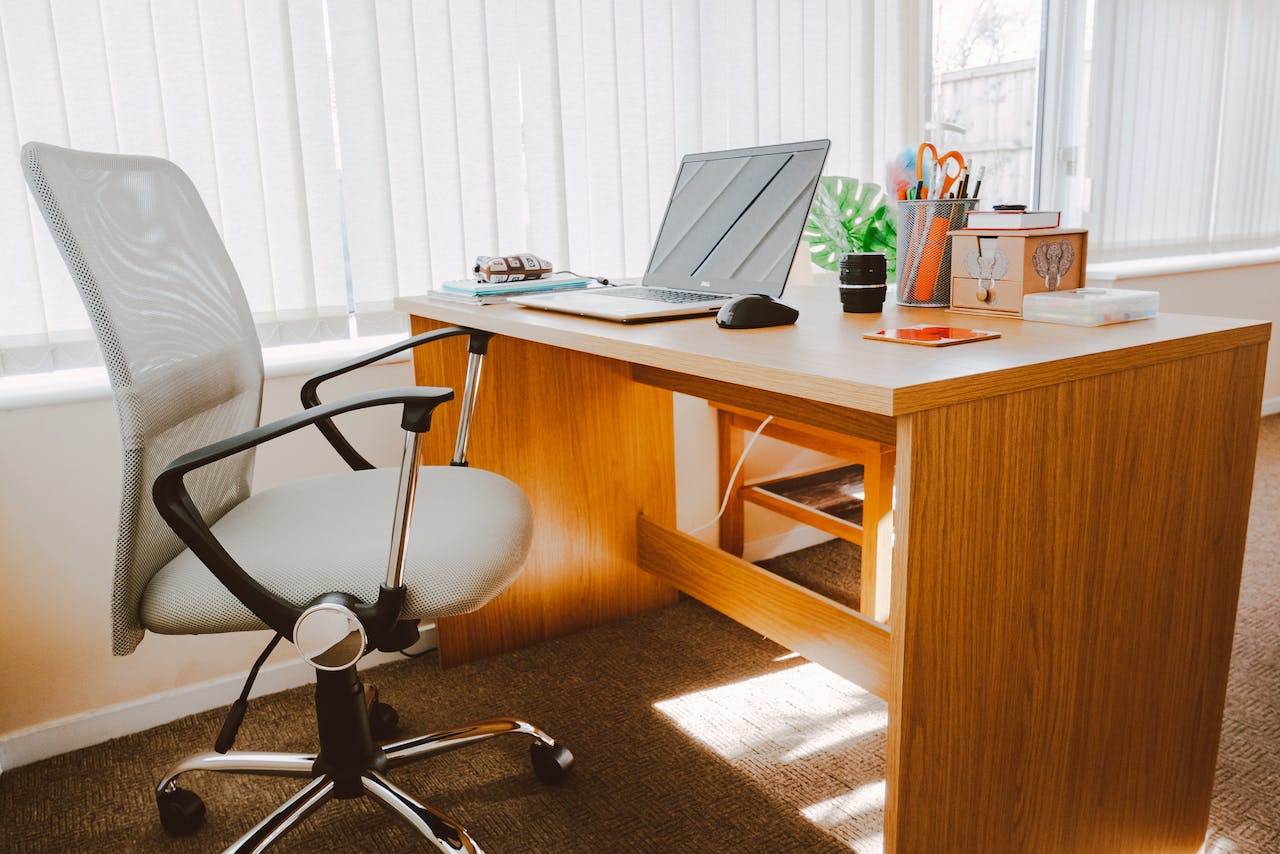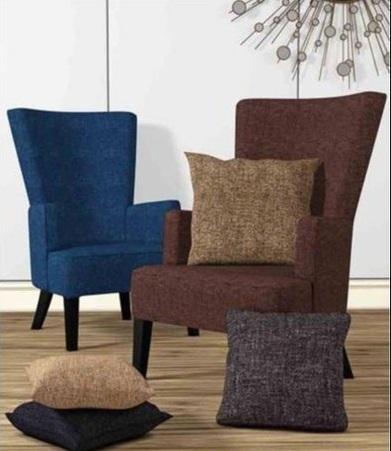How to Care for Your Office Furniture
Your office furniture plays a crucial role in creating a productive and comfortable work environment. Whether you work from home or in a traditional office setting, taking good care of your office furniture is essential to ensure its longevity and maintain a pleasant workspace. In this comprehensive guide, we will explore the best practices for caring for your office furniture. From your desk and chairs to storage units and lighting fixtures, we’ll cover it all. So, let’s dive in and learn how to keep your office furniture in top-notch condition.
Understanding the Value of Proper Office Furniture Care
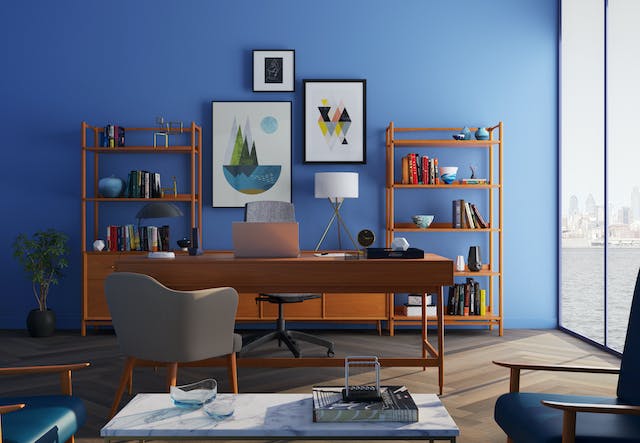
Before we get into the nitty-gritty of office furniture care, it’s important to understand why it’s so crucial. Properly cared-for furniture not only looks better but also has several other benefits:
1. Longevity:
Investing in quality office furniture can be expensive, so you want it to last. Regular maintenance can significantly extend the lifespan of your furniture, saving you money in the long run.
2. Comfort and Productivity:
Well-maintained furniture is more comfortable to use. When you’re comfortable, you’re likely to be more productive. Taking care of your furniture can indirectly boost your work performance.
3. Aesthetics:
An office with clean and well-maintained furniture looks more professional and inviting. It leaves a positive impression on clients, colleagues, and yourself.
Now that we understand why office furniture care is important, let’s get into the specifics of how to do it.
Caring for Different Types of Office Furniture
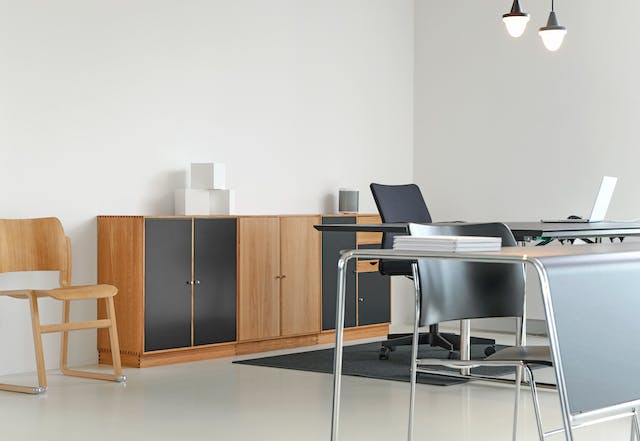
Office furniture comes in various forms, and each type requires specific care. Here’s how you can care for the most common types:
1. Desks and Workstations:
Your desk is the centerpiece of your workspace, and it’s where you spend most of your time. To ensure it stays in great condition:
- Cleaning: Regularly wipe down your desk with a soft, damp cloth. Avoid abrasive cleaners that can scratch the surface. Use a mild detergent if necessary, and always dry it thoroughly.
- Protection: Use desk pads or coasters to protect the surface from scratches, spills, and heat. Place your computer and other equipment on stands or mounts to prevent contact with the desk.
- Organization: Keep your desk clutter-free to avoid unnecessary wear and tear. Use desk organizers to manage cables and prevent them from getting tangled.
2. Chairs:
Your office chair is another essential piece of furniture. To keep it comfortable and functional:
- Cleaning: Vacuum your chair regularly to remove dust and debris. Spot clean stains promptly with a fabric cleaner. Follow the manufacturer’s instructions for specific fabrics.
- Adjustments: Periodically check and adjust the chair’s settings, such as height, armrests, and lumbar support, to ensure it’s ergonomically sound.
- Wheels and Casters: Keep the wheels and casters clean and lubricated. Replace them if they become damaged or don’t roll smoothly.
3. Filing Cabinets and Storage Units:
Properly maintained storage units keep your office organized and your documents secure:
- Organization: Regularly declutter and organize your filing cabinets. Use labels and dividers to make finding documents easy.
- Locks and Keys: Lubricate locks and keys to prevent sticking. If a lock is malfunctioning, consider repairing or replacing it.
- Cleaning: Dust and clean the exterior of your storage units regularly. Use a damp cloth or a wood-safe cleaner for wooden cabinets.
4. Lighting Fixtures:
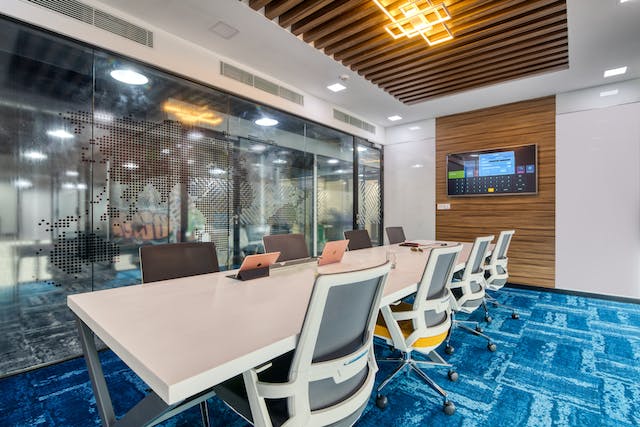
Good lighting is essential for productivity. Maintain your lighting fixtures to ensure a well-lit workspace:
- Cleaning: Dust and clean light fixtures to maximize brightness. Replace bulbs when they burn out or become dim.
- Adjustment: Make sure your desk lamp or overhead lighting is positioned correctly to reduce glare and eye strain.
- Energy Efficiency: Consider using energy-efficient LED bulbs to save on energy costs and reduce your environmental impact.
5. Conference Tables and Meeting Room Furniture:
Maintaining these pieces is crucial for creating a professional atmosphere for meetings:
- Cleaning: Regularly clean and polish the surface of your conference table. Avoid placing hot items directly on the table to prevent damage.
- Seating: Keep meeting room chairs clean and in good repair. Replace worn-out cushions or upholstery as needed.
- Technology: Ensure that any integrated technology, such as projectors or teleconferencing equipment, is well-maintained and functioning properly.
General Office Furniture Care Tips
In addition to specific care for each type of office furniture, there are some general tips that apply to all pieces:
1. Regular Cleaning:
Dust and dirt can accumulate on all types of office furniture. Regular cleaning is essential to prevent buildup. Use a soft, lint-free cloth or a duster to remove dust. For deeper cleaning, follow the manufacturer’s recommendations and use appropriate cleaning products.
2. Avoid Moisture and Humidity:
Excess moisture can damage wood and other materials. Avoid placing your furniture in areas prone to high humidity, and use dehumidifiers if necessary. If a spill occurs, clean it up immediately to prevent staining and warping.
3. Protect from Sunlight:
Direct sunlight can cause fading and discoloration of furniture, especially wooden surfaces. Position your furniture away from direct sunlight or use blinds and curtains to block harmful UV rays.
4. Monitor for Damage:
Regularly inspect your office furniture for signs of wear and damage. Loose screws, wobbly legs, or chips in the wood should be addressed promptly to prevent further deterioration.
5. Follow Manufacturer’s Instructions:
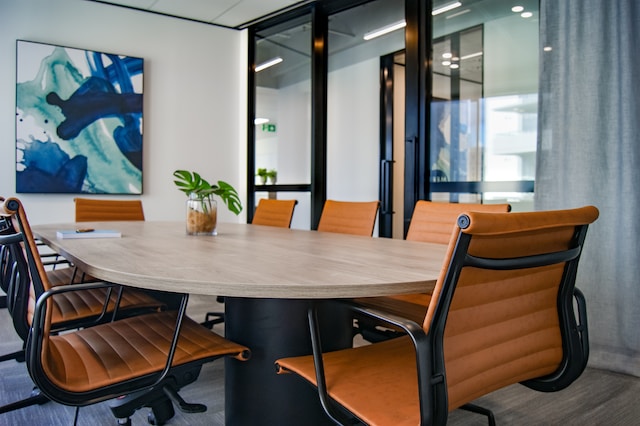
Each piece of furniture may have specific care instructions from the manufacturer. Always follow these guidelines for the best results. Ignoring these instructions could void any warranties.
6. Move Furniture Carefully:
When rearranging your office or relocating, take care when moving furniture. Lift heavy items instead of dragging them to avoid scratching floors and damaging the furniture.
7. Invest in Quality Furniture:
Quality office furniture is designed to withstand regular use and is often easier to maintain. While it may require a larger upfront investment, it can save you money in the long run by lasting longer and requiring less maintenance.
Conclusion
Caring for your office furniture is a simple yet essential task that can have a significant impact on your workspace and work experience. That’s why platforms like https://worki.mn/ enable you to get information about the office before applying. By following the tips and techniques outlined in this guide, you can extend the lifespan of your furniture, enhance your comfort and productivity, and maintain a professional and inviting office environment.
Remember, office furniture care is an ongoing process. Regular maintenance and a proactive approach to addressing issues can help you enjoy your workspace to the fullest while ensuring your investment in quality furniture pays off in the long run. So, take the time to care for your office furniture, and you’ll reap the benefits in the form of a comfortable and productive workspace.


